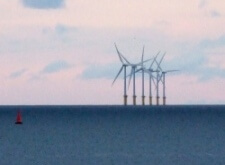
Knocked Off Course in IEA Estimates due to Wind Farm Slowdown
Whilst the UK celebrates a boom in offshore wind capacity, news comes that Europe will miss its legally binding renewable energy target for 2020 because of a slowdown in the construction of wind farms and a slump in power prices.
According to GlobalData’s analysis the level of Offshore wind’s contribution to the UK’s energy mix has risen from 0.3GW in 2006 to 3.7GW in 2013 with additional investment due to double from £2bn in 2013 to £4.6bn by 2020 leading a potential for 11GW of offshore wind generation to be connected to the grid.
Swati Singh, GlobalData’s Analyst covering Power said:
“The UK’s growing concerns over climate change and the security of its energy system will provide sufficient impetus for the country’s offshore wind industry to continue its growth trajectory”.
Whilst the UK Government has set a target of generating 15% of energy from renewable sources by 2020 and the investment and growth in offshore wind is strongly contributing to hitting these targets, the EU wide performance couldn’t be more different.
The International Energy Agency (IEA) has warned that in order to meet the overall EU target, 35% of electricity will need to be generated from renewables over the coming years. In 2012, renewable generation accounted for 24%, up from 15% in 2005 so a similar rise would move the target closer however the IEA believe the conditions are no longer right for such a growth phase.
The IEA expects that as subsidies are being cut and power prices are at a relative low, the rate of growth in new renewable generation will inevitably slow as returns become less attractive and risks rise.
According to the IEA’s “very preliminary” estimate the EU would potentially be able to source 30% of its electricity from renewables by 2020, short of the required target.
A spokesman for the IEA said:
“Policy framework uncertainties, supply chain bottlenecks and persistently high project costs have all weighed upon offshore wind deployment”.
As ever nothing is quite what it seems in the renewable sector and one nation cannot do it alone, better then for the UK to focus on a diversified energy generation strategy for the sake of security of supply rather than hopeful and ephemeral global targets that others have less intention or ability to meet.
